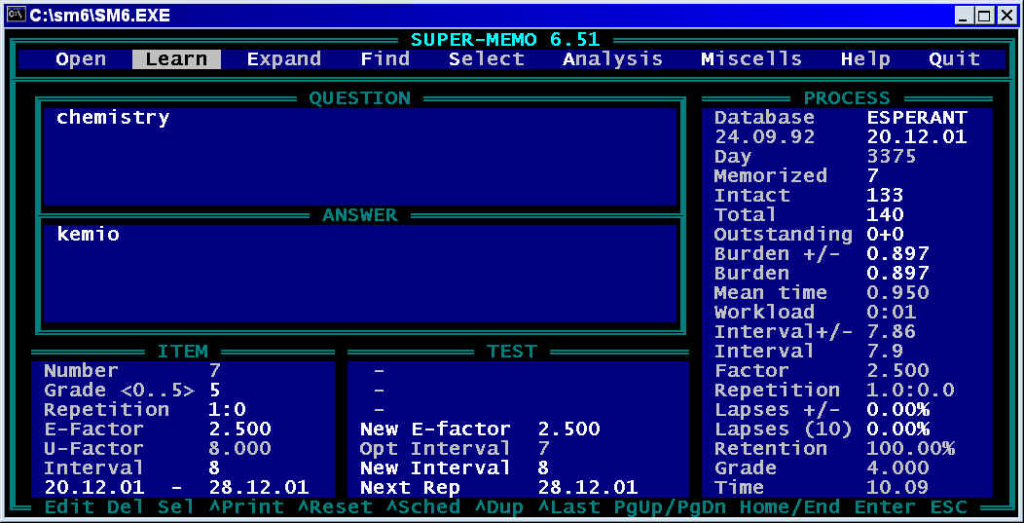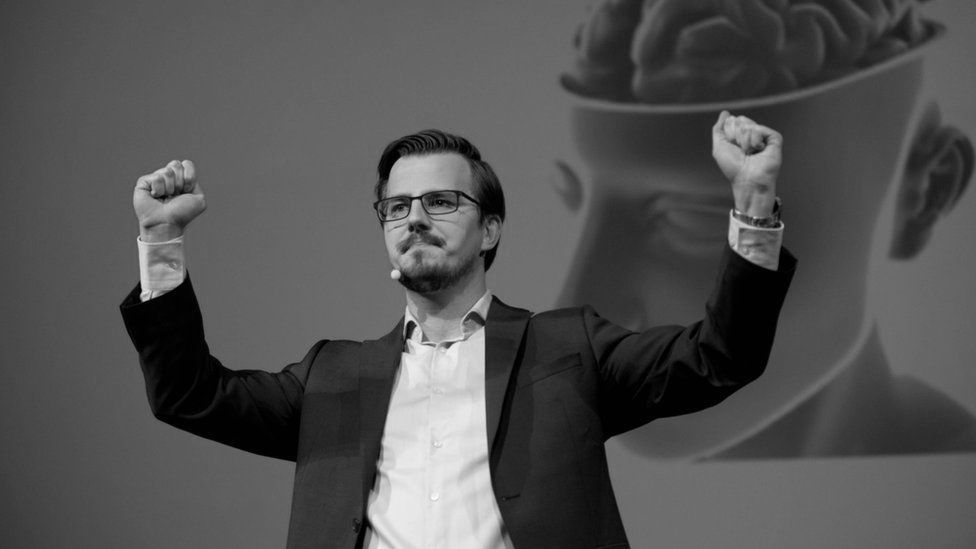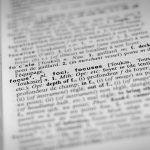Piotr Woźniak was a student at the Poznan University of Technology and studied the effect of sleep on memory. From his research, he found that we actually formulate new memories only during sleep.
Woźniak struggled to memorize material from his studies, so he started developing software to be able to remember the material better. The result of his work was the SuperMemo algorithm. It was the first real implementation of the so-called forgetting curve, defined by Hermann Ebbinghaus in 1885. It says that the forgetting of new information happens very fast, and repetition somehow resets the forgetting.
The algorithm that plans repetitions is known as spaced repetition (SR).
Every time you learn something with SR, the brain checks whether the material has already been stored in memory. So it tries to retrieve previously acquired knowledge. If you find that you have already acquired the knowledge before and it is presented to you a second time, the knowledge will be stored even better in your memory. The effect is that you can more easily retrieve the material when you need it.
The second version of Wozniak’s SuperMemo algorithm (the so-called SM-2) is used as a base by a multitude of applications for learning languages, including Duolingo and Anki. The algorithm evolved with time and includes many improvements.
The real breakthrough, however, came with version 6. It was the first practical way in history to schedule repetitions according to the true Ebbinghaus forgetting curve. Woźniak was even covered by the prestigious Wired magazine in 2008 in the article “Want to Remember Everything You’ll Ever Learn? Surrender to This Algorithm.”
SuperMemo lived to see its commercial version. In 1992 it was a finalist in the “Software for Europe” competition at the prestigious CeBIT computer exhibition. In 1997 it was announced by PCkurier as the product of the year in Poland.

Quite often SuperMemo’s developers appropriate the whole idea of spaced repetition to themselves, which, as you can see from the above information, is not true.
For language learning, this means that in a span of 3 years you can memorize 10 thousand words and phrases per year, and recall up to 95% of them.








